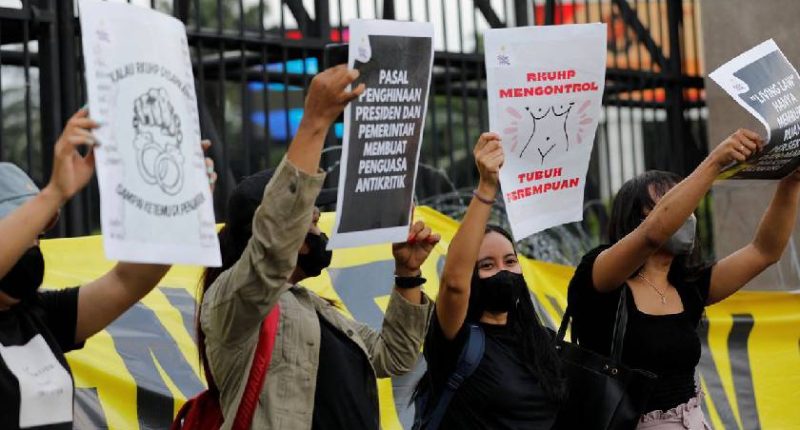Indonesia’s parliament has approved a new criminal code that bans anyone in the country from having extramarital sex and restricts political freedoms.
Sex outside marriage will carry a jail term of up to a year under the new laws, which take effect in three years.
The raft of changes comes after a rise in religious conservatism in the Muslim-majority country.
Critics see the laws as a “disaster” for human rights, and a potential blow to tourism and investment.
Several groups of mainly young people protested against the legislation outside parliament in Jakarta this week. It’s expected the new laws will be challenged in court.
They apply equally to locals and to foreigners living in Indonesia, or visiting holiday destinations such as Bali. Under the laws, unmarried couples caught having sex can be jailed for up to a year.
They are also banned from living together – an act for which people could be jailed for up to six months. Adultery will also be an offense for which people can be jailed.
Supporters of the legislation say changes were made to accommodate the concerns of critics – for prosecutions to start a complaint must be filed by the children, parents, or spouse of the accused couple.
Ajeng, a 28-year-old Muslim woman living in the West Java city of Depok, said she was now at risk for living with her partner for the past five years.
“With the new law, both of us can go to jail if one of the family decides to make a police report,” she told the BBC.
“What if there’s one family member who has a problem with me and decides to send me to jail?
“I think living together or having sex outside of marriage is not a crime. In my religion, it’s considered a sin. But I don’t think the criminal code should be based on a certain religion.”
She said she had joined the nationwide protests in 2019 when the law had first been broached. She took the sign: “For the right to cuddle, I took to the streets.”
However, on Tuesday, parliament unanimously approved the new code of over 600 articles.
Rights groups say the new provisions disproportionately affect women, LGBT people and ethnic minorities.
Many businesses had also been opposed to the legislation, saying it discouraged visitors and investment. But lawmakers have celebrated overhauling laws dating back to Dutch colonial rule.
“It is time for us to make a historical decision on the penal code amendment and to leave the colonial criminal code we inherited behind,” law minister Yasonna Laoly told parliament.
The new legislation contains scores of new clauses criminalizing immorality and blasphemy and restricting political and religious expression.
Source:bbc.com





